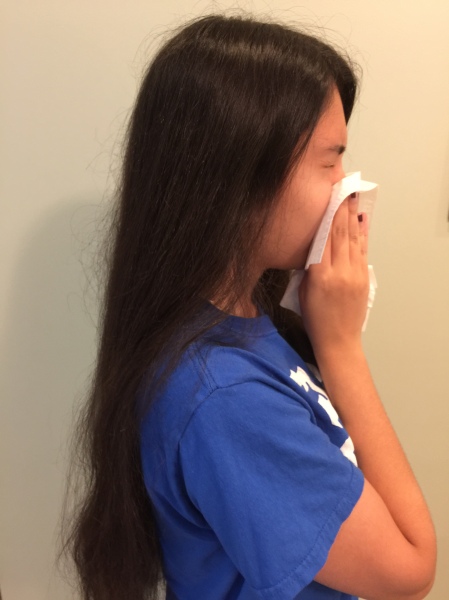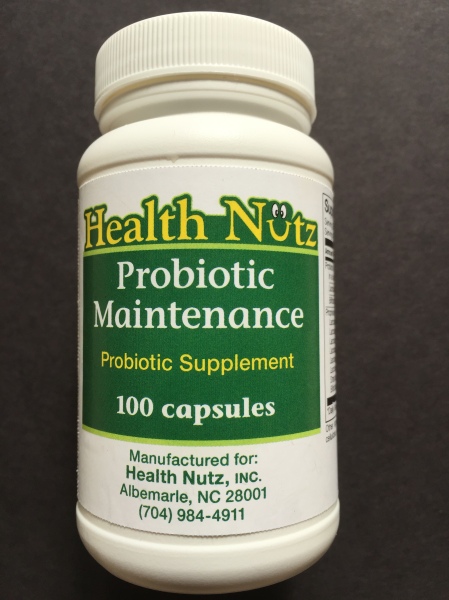
Seasonal allergies affect millions of Americans each year and are responsible for a lot of time lost from work and decreased productivity. Allergy sufferers usually have sinus pressure, facial pain, runny nose, nasal congestion, postnasal drip (drainage in the back of the throat), sore or itchy throat plus or minus sneezing and itchy, watery eyes. Symptoms of seasonal allergies are very similar to upper respiratory infections and are therefore often confused with them. Unfortunately, misdiagnosis and over diagnosis lead to frequent use of unnecessary antibiotics. Traditionally, we have used antihistamines and nasal steroid sprays for treatment of allergies. Although mostly effective and safe, these treatments do have their side effects. Sinus and ear infections, nosebleeds and dry mouth could result from regular use of such medications. In those with severe symptoms, allergy injections are utilized, which require weekly trips to the doctor’s office for several years. Patients have to stay for observation for 30 minutes after the shots which makes the process very cumbersome, to say the least.
So, what to do if you don’t want to use these pharmaceutical approaches for treatment of your seasonal allergies? Here are 9 alternative but scientifically proven non pharmaceutical remedies you may want to considers:
 1. Local honey used daily has been shown to be very effective for managing seasonal allergies. Non pasteurized local honey, taken one teaspoon a day, usually takes a year to show benefits. Please keep in mind that honey is not to be used for infants less than a year old.
1. Local honey used daily has been shown to be very effective for managing seasonal allergies. Non pasteurized local honey, taken one teaspoon a day, usually takes a year to show benefits. Please keep in mind that honey is not to be used for infants less than a year old.
2. Quercetin is a flavonoid found in many fruits, vegetables and grains. Works well for allergies, especially in combination with Bromelain.
3. Bromelain is a pineapple enzyme. By itself or along with Quercetin, it has been shown to do wonderfully for allergy symptoms. Bromelain is found as a supplement at most health food stores and also helps with mild digestive issues.
4. Acupuncture is also a great alternative remedy for management of allergies. Make sure to find a board-certified acupuncturist, preferably one who is completed an internship program after finishing his or her studies.
5. Traditional Chinese medicine is another great alternative. Make sure to see a licensed provider who utilizes quality herbs. These probably yield more optimal results when used in combination with acupuncture.
6. Sinus irrigation devices are highly underutilized in treatment of allergies. Several studies have shown daily saline (saltwater) nasal irrigation to be an effective adjunct remedy for allergies, particularly for the nasal symptoms. Make sure not to use table salt as it is iodinated and iodine damages the internal nasal tissues. Sinus irrigation devices are readily available these days and if you purchase a reusable brand, go for porcelain over plastic. Keep your device clean and dry in between applications.
7. Probiotics are immune modulators and help modify your gut flora. These have proved to be great adjuncts in treatment  of allergies and asthma in multiple studies in particular landmark research done in Denmark and Sweden. Be sure to get dairy-free probiotics and consult your functional medicine provider about the appropriate strains for treatment of allergies.
of allergies and asthma in multiple studies in particular landmark research done in Denmark and Sweden. Be sure to get dairy-free probiotics and consult your functional medicine provider about the appropriate strains for treatment of allergies.
8. Dietary modifications are the hallmark of allergy treatment in functional medicine. Many individuals with moderate to severe seasonal allergies would benefit from this approach. Although various foods may serve as triggers, eliminating dairy products for 4 weeks would probably prove most helpful. If your allergies improve by avoiding milk products for 4 weeks, I would avoid them for good or eat them once every 4 days and in extreme moderation.
9. Sublingual Immunotherapy (SLIT) works by desensitization through the use of allergy drops. These drops are made specifically for you based on your blood test results for local allergens and unlike allergy injections which are usually given at a doctor’s office, you get to use these on your own and while at home or work. Although safely utilized in several European countries for years, the FDA has been slow in approving these in the U.S. In fact, the only approved forms of oral desensitization for treatment of seasonal allergies in America are a couple of recently approved pharmaceutical medications. We have been offering allergy testing and drops to our patients for several years and I must admit patients using these have been extremely happy with the results.
As with most alternative remedies, these treatments usually work best when utilized regularly. For more severe symptoms, you would probably notice better results when using a couple of these methods simultaneously.
Now, I would like to hear from you. Have you or anyone you know tried any of these alternative seasonal allergy remedies? If so, how would you describe the experience? If you have tried more than one of these options, would you consider any one of them superior to the rest? As usual, please remember, I would not be able to answer any personal health questions in a public forum.
